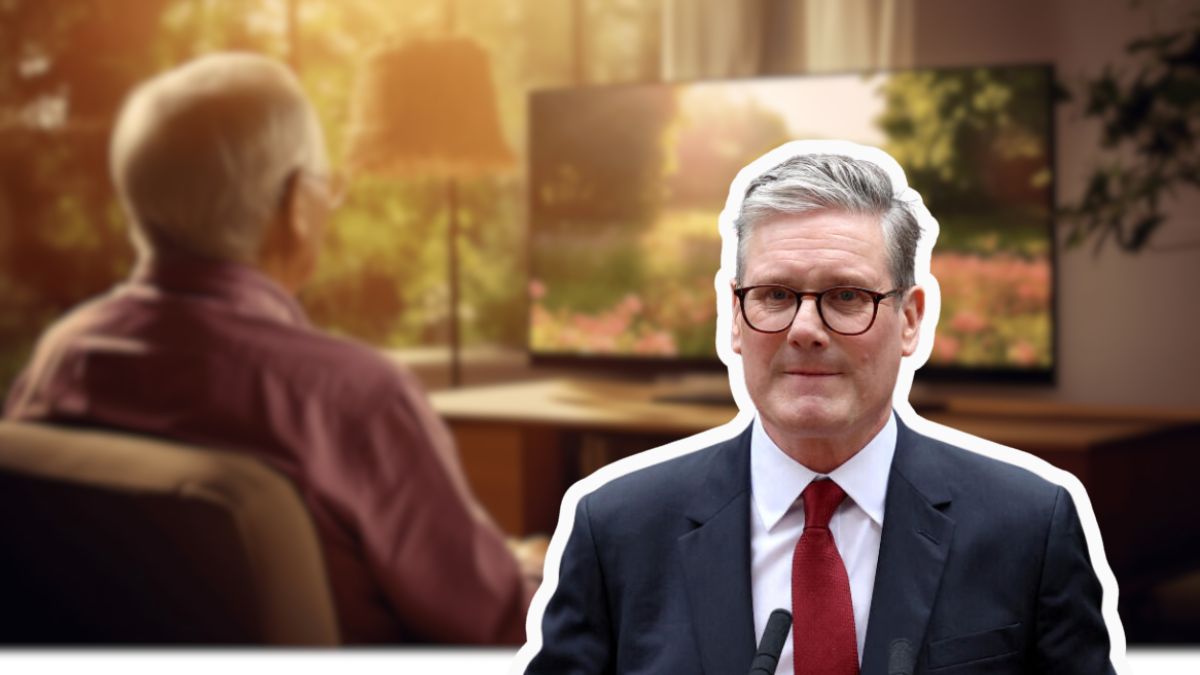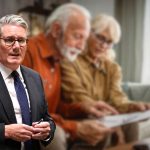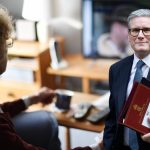Starting in April 2025, the UK government will reinstate free TV licences for everyone aged 75 and over, reversing a controversial policy change made in 2020. The decision is being celebrated as a significant win for millions of pensioners, offering relief amid the ongoing cost-of-living crisis.
For many older adults, television is more than entertainment—it is a vital connection to the outside world, news, and companionship. The return of this universal benefit will ease financial strain and reaffirm the government’s commitment to supporting its ageing population.
What is a TV Licence?
In the UK, a TV licence is legally required to watch or record live broadcasts or to use BBC iPlayer. The current annual fee is £169.50, which can be a heavy burden for pensioners living on fixed incomes.
The free TV licence scheme provides access to essential media without forcing older adults to sacrifice a significant portion of their limited budgets.
History of the Free TV Licence Scheme
The free TV licence was originally introduced in 2000, granting all residents aged 75 and over the benefit.
- In 2020, the funding responsibility shifted from the government to the BBC, which restricted eligibility to those receiving Pension Credit. This left millions without access.
- Campaigns led by charities such as Age UK, alongside strong public and political pressure, pushed the government to restore the universal scheme.
- In 2025, the government will once again take over funding, restoring the benefit for all over-75s.
Key Details of the 2025 Policy Change
The reinstated free TV licence comes with clear rules:
- Universal Eligibility: Every UK resident aged 75 or older qualifies, regardless of income or benefits.
- Government Funding: The government will cover costs, not the BBC, easing financial strain on the broadcaster.
- Start Date: The scheme takes effect in April 2025, aligning with the new financial year.
- Reach: Over 4.3 million pensioners are expected to benefit.
Reasons Behind the Policy Reversal
The government’s decision reflects multiple pressures:
- Cost-of-Living Crisis: With rising bills, older citizens need financial relief more than ever.
- Social Isolation: For many pensioners, TV is a key source of companionship and mental well-being.
- Public Advocacy: Campaigns by MPs, charities, and the public emphasized the importance of reinstating the scheme.
- Political Promises: The government pledged to prioritize older citizens during tough economic conditions.
Who Qualifies for the Free TV Licence?
The scheme applies to:
- All UK residents aged 75 and over.
- Pensioners across England, Scotland, Wales, and Northern Ireland.
- Those living in private households or care homes.
In total, about 4.3 million individuals will qualify.
How to Access the Free TV Licence
The process has been designed to be simple and automatic:
- Automatic Conversion: Existing licences will convert to free status for those already 75 or older.
- Notifications: TV Licensing will send confirmation letters to eligible pensioners.
- New Applicants: Those turning 75 in 2025 must contact TV Licensing to update records.
- No Means Testing: Income or benefit status will not affect eligibility.
Pensioner Reactions
The news has been welcomed warmly by retirees:
- “It’s a huge relief to know I won’t have to budget for this anymore,” said Susan, 78, from Birmingham.
- “Television keeps me connected. This decision shows the government cares,” said David, 81, from Cardiff.
For many, the reinstatement reduces financial stress while safeguarding quality of life.
Charity and Expert Perspectives
Charities such as Age UK have hailed the policy as a victory for social equity, emphasizing its role in reducing loneliness.
Economists, however, highlight the £700 million annual cost to the government, raising concerns about long-term funding. Advocates argue that the social and health benefits justify the expense, pointing to reduced isolation and better mental well-being.
Impact on the BBC
The return of government funding lifts a significant burden from the BBC, which had faced criticism for carrying the cost. This change is expected to stabilize the broadcaster’s finances and prevent potential cuts to services or programming.
Concerns and Criticisms
Despite broad support, the scheme has raised some questions:
- Sustainability: Can the government maintain the £700 million cost in the long run?
- Equity: Some argue that wealthy pensioners should not receive the same benefit as those on limited incomes.
- Future Commitment: Questions remain over whether future governments will continue the scheme.
Savings for Pensioners
Each eligible household will save £169.50 per year under the reinstated scheme. For couples where both partners are over 75, the savings could add up to nearly £340 every two years.
In the context of rising food and energy costs, these savings represent meaningful financial relief.
Broader Pensioner Support in 2025
The reinstatement of free TV licences complements other key measures:
- Triple Lock State Pension increases to protect retirement incomes.
- Winter Fuel Payments to ease heating costs.
- Free or subsidized local travel schemes, such as bus passes.
Together, these benefits form a comprehensive support system for older adults.
Why TV Matters for Pensioners
Television plays an outsized role in the lives of many seniors:
- A source of information and news.
- An outlet for entertainment and companionship.
- A way to combat loneliness and maintain mental well-being.
- A connection to the broader world.
Surveys show that more than 90% of people aged 75+ watch TV daily, underlining why this policy is so significant.
International Comparisons
The UK’s restored scheme places it alongside other countries prioritizing pensioners:
- Ireland: Free TV licences for those over 70.
- Germany: Fee reductions for low-income pensioners.
- Scandinavia: Public broadcasting funded through taxation instead of individual licences.
This highlights the UK’s renewed commitment to protecting older citizens.
Timeline of Free TV Licence Policy
- 2000: Free licences introduced for all over-75s.
- 2020: Eligibility restricted to those on Pension Credit.
- 2025: Universal free licences restored for everyone aged 75 and over.
This evolution reflects changing government priorities in response to public need.
FAQs
Q1: When will the free TV licence scheme return?
The scheme will be reinstated from April 2025.
Q2: Who qualifies for the free TV licence?
All UK residents aged 75 or older, regardless of income or benefits.
Q3: How much money will pensioners save?
Each eligible household saves £169.50 annually. Couples where both partners qualify may save nearly £340 every two years.
Q4: Do pensioners need to apply for the free licence?
No. Licences will automatically convert to free status, though those turning 75 in 2025 must update records with TV Licensing.
Q5: How will the scheme be funded?
The government will cover the £700 million annual cost, not the BBC.










